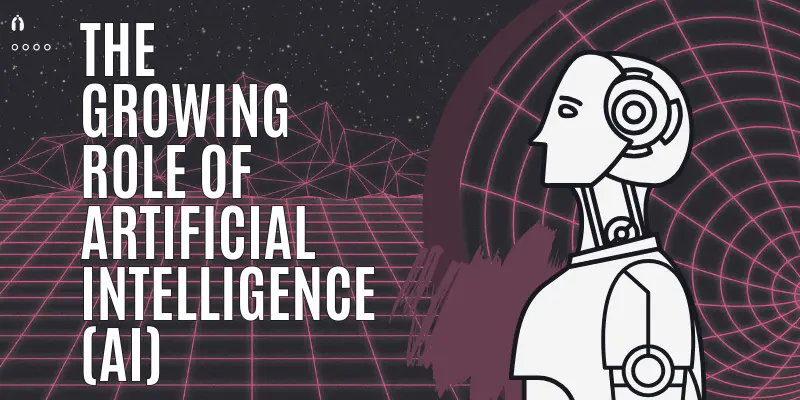The Future of Technology – What’s Next for Our World?
Published: 22 Feb 2025
As technology continues to evolve, it can often feel overwhelming to keep up with the latest trends. From worrying about data security to wondering how automation might affect your job, the future of technology raises many questions. But instead of fearing these changes, understanding how technology will improve our lives and solve everyday problems can help us stay ahead of the curve.
The future of technology is something that everyone should be excited about. As technology continues to evolve, it promises to make our lives easier, smarter, and more connected than ever before. From the rise of artificial intelligence to the development of self-driving cars, these innovations are changing how we work, communicate, and even think. Technology is not just shaping the way we live today; it’s paving the way for a future filled with endless possibilities.
Whether it’s improving healthcare, enhancing education, or creating smarter cities, the future of technology will impact us all in ways we can’t even imagine yet. Let’s explore what’s next!
The Growing Role of Artificial Intelligence (AI)

What is AI?
- AI is technology that helps machines think and learn like humans.
- It allows computers to understand things, make decisions, and even solve problems without needing to be programmed for every single task.
Simple Explanation of AI in Everyday Life
- AI is already a part of your daily routine.
- Siri and Google Assistant: Help you set reminders, send texts, or get answers to questions just by speaking.
- Recommendation Systems: AI suggests movies or songs based on what you’ve watched or listened to before.
- Smart Home Devices: Devices like smart thermostats or lights use AI to learn your habits and adjust settings automatically.
How AI Will Change Jobs and Industries
- AI will bring big changes to different job sectors.
- Healthcare: AI will help doctors diagnose diseases faster and more accurately, using data from medical tests.
- Customer Service: AI-powered chatbots can answer common questions or solve problems, reducing wait times.
- Self-Driving Cars: AI in cars will allow them to drive themselves, reducing accidents and making travel more efficient.
- Manufacturing and Retail: AI will help automate repetitive tasks, freeing up human workers to focus on more creative and complex roles.
AI in Everyday Life
How AI Makes Homes Smarter
- Smart Thermostats: Learn your preferences and adjust the temperature for comfort and energy savings.
- Voice-Activated Assistants: Devices like Amazon Alexa or Google Home let you control lights, play music, or check the weather using just your voice.
- Smart Security: AI in security cameras can recognize faces and alert you if something unusual happens.
How AI Helps in the Workplace
- Automating Tasks: AI can handle repetitive tasks like data entry or scheduling, giving you more time for important work.
- AI-Powered Tools: Software like email filters, predictive typing, and document search engines make your workday more efficient.
- Collaboration: AI tools can help teams communicate better by organizing meetings, setting reminders, and even suggesting the best times for group tasks.
AI is rapidly changing how we live and work, and its role will continue to grow as technology advances. It makes tasks easier, faster, and more efficient—whether at home or in the workplace.
The Rise of 5G and Faster Internet
What is 5G?
- 5G is the fifth generation of mobile network technology.
- It’s much faster than 4G and allows more devices to connect at the same time.
- 5G uses new technology that reduces delays (latency) and boosts data speeds.
Simple Explanation of 5G Compared to 4G
- Faster Speeds: 5G is up to 100 times faster than 4G, meaning downloads and uploads happen almost instantly.
- Lower Latency: 5G reduces the time it takes for data to travel, making online activities like gaming and video calls smoother.
- More Connections: 5G can handle more devices at once, meaning it will support the growing number of connected devices in homes and businesses.
How 5G Will Impact Our Lives
Faster Downloads and Uploads
- Downloading movies or apps will take seconds, not minutes.
- Uploading photos or videos will be faster, making social media and content creation more efficient.
Better Streaming
- Streaming shows and movies in high-definition (HD) or even 4K will be seamless without buffering or interruptions.
- Live events (sports, concerts) can be streamed in real-time with high-quality video and sound.
New Tech Like Smart Cities
- 5G will power smart cities, where traffic lights, public transport, and utilities are connected and controlled to improve efficiency.
- Sensors in public spaces can send real-time data to improve safety and reduce energy use.
Benefits for Remote Work and Education
Improved Video Calls
- 5G will make video calls clearer and reduce lag, helping colleagues and students feel more connected, no matter the distance.
Work and Learn From Anywhere
- Faster internet will allow you to work from home, attend virtual classes, or collaborate on projects more easily without worrying about connection issues.
More Reliable Online Meetings
- With 5G, video conferences will be smoother, making it easier to hold discussions, share screens, and work in real-time with teams from different locations.
Tip:
“5G will make video calls clearer and allow us to stream shows without interruptions.”
5G will revolutionize how we experience the internet by making everything faster, more reliable, and connected. Whether you’re working, learning, or simply enjoying entertainment, 5G promises a smoother, more efficient digital experience.
Smart Homes and IoT (Internet of Things)
What is IoT?
- IoT stands for the Internet of Things, which connects everyday devices to the internet.
- These devices can send and receive data, making them smarter and easier to control.
- Examples of IoT devices include fridges, thermostats, security cameras, and even coffee makers.
Brief Explanation of Connected Devices
- Connected Fridges: These fridges can track your groceries and even suggest recipes based on what you have inside.
- Smart Thermostats: They learn your preferences and adjust the temperature automatically for comfort and energy savings.
- Security Cameras: You can view your home’s security footage in real-time from your phone, no matter where you are.
How Smart Homes are Becoming Commonplace
- Voice-Controlled Devices
- Devices like Amazon Alexa or Google Home let you control your home’s lights, music, and even shopping lists by simply speaking.
- Smart Locks
- Smart locks let you unlock your door using your phone or a code, offering convenience and security without traditional keys.
- Automated Lighting
- Lights that turn on or off based on your schedule or motion sensors, saving energy and adding comfort to your home.
Benefits of IoT in Daily Life
- Convenience and Efficiency
- You can control almost every aspect of your home remotely, whether it’s adjusting the temperature, turning off the lights, or managing your security system.
- Energy Savings
- IoT devices, like smart thermostats and lights, help reduce energy waste by automatically adjusting settings when you’re not home.
- Increased Security
- Smart cameras and doorbells help you monitor your home in real-time, receiving alerts on your phone if there’s unusual activity.
Example:
“You can turn off your lights, lock your door, and check your fridge—all from your phone.”
IoT is making everyday tasks easier and more efficient by connecting devices in ways that were once unimaginable. With smart homes, you can save time, reduce energy costs, and even increase your security, all from the palm of your hand.
The Future of Transportation

Electric Vehicles (EVs)
- EVs are cars powered by electricity instead of gasoline.
- They are better for the environment because they don’t produce harmful emissions.
- EVs are more energy-efficient and cost less to maintain compared to traditional cars with gas engines.
- Benefits of EVs for the Environment and Transportation Costs
- Environmentally Friendly: Since EVs don’t burn fossil fuels, they help reduce air pollution and greenhouse gas emissions.
- Lower Transportation Costs: Charging an electric vehicle is cheaper than filling up a gas tank, and EVs have fewer moving parts, meaning less maintenance.
- Quiet Ride: EVs are quieter than traditional cars, reducing noise pollution.
Self-Driving Cars
- Self-driving cars are vehicles that can drive themselves with little or no human control.
- They use sensors, cameras, and artificial intelligence (AI) to navigate the road.
- Self-driving cars are being tested by companies like Tesla, Waymo, and Uber, and may soon be available for everyday use.
- How Self-Driving Cars Work and How They Could Change Commuting
- Advanced Sensors and Cameras: These cars use technology to “see” their surroundings, avoid obstacles, and follow traffic laws without a human driver.
- Safer Commutes: Since self-driving cars can reduce human errors, they have the potential to lower accidents and make roads safer.
- More Free Time: Passengers can relax, work, or do other activities during the ride instead of focusing on driving.
Public Transportation Innovations
- New advancements in public transportation are helping people travel faster, more comfortably, and more efficiently.
- High-Speed Trains: These trains can travel faster than regular trains, cutting travel time between cities and making commuting easier.
- Flying Taxis: Also known as vertical takeoff and landing (VTOL) vehicles, flying taxis could help reduce traffic on the roads and provide faster travel options in urban areas.
- Eco-Friendly Buses and Trains: Many cities are adopting electric or hybrid buses and trains, helping to reduce pollution and make public transportation more sustainable.
Tip:
“Electric cars are getting cheaper and charging stations are expanding, making them a smart choice for the future.”
The future of transportation is full of exciting possibilities. From electric vehicles that help protect the environment to self-driving cars that could make commuting more convenient, the changes in how we travel are already underway. Plus, innovations in public transport like high-speed trains and flying taxis are set to make getting from place to place quicker and easier.
Healthcare Innovations
Telemedicine
- Telemedicine is the use of technology to provide healthcare remotely.
- Patients can see a doctor via video calls or online consultations instead of visiting a clinic.
- Telemedicine helps reduce wait times, travel costs, and makes healthcare more accessible for people in rural or underserved areas.
- How Virtual Doctor Visits Are Becoming More Popular
- Convenience: Virtual visits allow patients to speak with doctors from the comfort of their own home, reducing the need for in-person visits.
- Access to Specialists: Patients can easily connect with doctors or specialists located far away, breaking down barriers to expert care.
- Reduced Healthcare Costs: Virtual visits are often more affordable compared to traditional in-person appointments.
Wearable Tech for Health
- Wearable devices help track health data and provide valuable insights.
- These devices collect information about physical activity, heart rate, sleep, and other health metrics in real-time.
- Examples of Wearable Tech for Health
- Smartwatches: Devices like the Apple Watch or Fitbit track heart rate, daily steps, and even detect irregular heartbeats.
- Sleep Trackers: Wearable devices monitor your sleep patterns, helping you understand your sleep quality and improve overall health.
- Health Patches: Some wearable patches can monitor things like glucose levels or blood pressure without needing a doctor’s visit.
Advanced Treatments Using Technology
- New technologies are revolutionizing treatments in healthcare, making them more accurate and efficient.
- AI and Robotics in Surgeries: Surgeons now use robots to perform precise operations, reducing the risk of human error and speeding up recovery times.
- AI in Diagnosing Diseases: AI systems can analyze medical data to help doctors diagnose conditions like cancer or heart disease earlier, leading to better treatment outcomes.
- New Drug Development: Technology is speeding up the process of discovering and testing new medicines, helping patients get treatments faster.
Example:
“Imagine wearing a smartwatch that alerts you if something’s wrong with your health—like an early warning system!”
Healthcare innovations, from virtual doctor visits to wearable tech, are transforming how we manage our health. With tools that track everything from heart rate to sleep patterns and advanced AI helping doctors make more accurate diagnoses, the future of healthcare is moving toward more accessible, personalized, and efficient care.
Privacy and Cybersecurity in the Future
Why Cybersecurity Will Matter More
- The number of online threats and data breaches is increasing every year.
- As more of our lives move online, there are more opportunities for hackers to steal personal information.
- Cyberattacks like identity theft, phishing, and ransomware are becoming more sophisticated, making it harder to stay safe.
- Increase in Online Threats and Personal Data Risks
- Personal Data: Our personal details, from bank accounts to health records, are valuable targets for cybercriminals.
- Online Services: More people are using online shopping, banking, and social media, making it easier for hackers to steal sensitive information.
New Ways to Protect Personal Information
- Technology is evolving to offer stronger ways to keep our data safe.
- Advanced Encryption: This scrambles your data, making it unreadable to anyone without the proper key, keeping your information secure during online transactions.
- Multi-Factor Authentication (MFA): Adding an extra layer of security, MFA requires users to verify their identity through more than one method, such as a password and a code sent to their phone.
- Biometric Authentication: Using your face or fingerprints to unlock devices or log in to apps is becoming a common and secure way to protect personal data.
How Technology Will Help Keep Us Safe
- Advancements in technology will play a key role in enhancing our security online.
- Better Security Software: Antivirus programs and firewalls are becoming more advanced, automatically detecting and blocking threats in real-time.
- Facial Recognition: Many smartphones and even home security systems use facial recognition to keep devices and homes secure.
- AI-Based Security: AI can analyze patterns and detect unusual activities, helping to stop cyberattacks before they even happen.
Tip:
“Always update your passwords and use two-factor authentication to stay safe online.”
As technology advances, cybersecurity becomes even more important. With the rise of online threats and the increasing value of personal data, using tools like encryption, multi-factor authentication, and biometric security will help keep your information safe. Staying proactive with your online security is essential to avoid risks and protect yourself in the future.
Challenges We Might Face
Job Displacement
- Automation is changing the job market, leading to concerns about job loss.
- Automation in Factories: Robots and machines are replacing manual labor in many industries, such as manufacturing, which might lead to fewer jobs for humans.
- AI in Customer Service: Chatbots and AI systems can handle customer service tasks, meaning fewer people may be needed for phone or online support roles.
- New Opportunities: While some jobs are being replaced, new jobs are being created, especially in fields like AI programming, robotics, and data analysis.
Digital Divide
- Not everyone has equal access to technology, and this can create unfair opportunities.
- Limited Access to Devices: In some areas, especially rural or low-income regions, people may not have access to smartphones, computers, or reliable internet, making it hard to participate in digital learning or remote work.
- Unequal Education: With more schools moving online, students without access to technology are at a disadvantage when it comes to education and learning resources.
- Economic Gaps: The digital divide can widen the gap between wealthy and less fortunate communities, leaving some people behind as technology becomes more essential in daily life.
Ethical Concerns
- As technology advances, it raises important ethical questions about privacy, AI decisions, and its use in warfare.
- Privacy: With more data being collected by companies and governments, there are concerns about how personal information is used and who has access to it.
- AI Decision-Making: AI systems are increasingly making decisions in areas like hiring, loans, and law enforcement, raising concerns about fairness and bias in these automated processes.
- Technology in Warfare: The use of AI and drones in military operations brings up issues around accountability, the potential for errors, and the ethics of automated warfare.
Technology brings many benefits, but it also presents challenges. Job displacement due to automation, the digital divide, and ethical concerns about privacy and AI are all issues that society will need to address in the future. As we move forward, it’s important to consider how we can use technology responsibly and ensure that its benefits are shared fairly by everyone.
Conclusion
So guys, in this article, we’ve covered the future of technology in detail. We’ve explored how innovations like electric vehicles, AI, and smart devices are transforming our world. My recommendation is to stay ahead of the curve by adopting technology that suits your lifestyle, whether it’s using smart home devices or trying out new health tech.
The future is already here, and it’s up to you to make the most of it. Don’t forget to share your thoughts or experiences with these technologies in the comments!
Frequently Asked Questions About the Future of Technology
AI, or Artificial Intelligence, is technology that allows machines to learn and make decisions without human input. It works by analyzing data and finding patterns to solve problems. For example, AI helps Siri or Google Assistant answer your questions by understanding your voice and context.
5G is the fifth generation of mobile network technology, and it’s much faster than 4G. It allows quicker downloads, smoother video streaming, and better overall internet performance. This means no more buffering during online shows or lag in video calls.
Self-driving cars use sensors, cameras, and AI to drive without human input, and they are designed to be safer by reducing human errors. While they still have challenges to overcome, they have the potential to reduce accidents. As technology improves, these cars will become safer and more reliable.
The Internet of Things (IoT) refers to everyday devices that are connected to the internet and can communicate with each other. Examples include smart thermostats, wearable health trackers, and security cameras. These devices help make our lives more convenient and efficient.
Technology will automate some tasks, which may lead to job changes or displacement in some fields. However, it will also create new opportunities in industries like AI, robotics, and data analysis. It’s important to learn new skills to stay competitive in the evolving job market.
Electric vehicles (EVs are better for the environment because they don’t produce harmful emissions like gasoline-powered cars. They help reduce air pollution and lower the overall carbon footprint. Plus, they are energy-efficient and cost less to maintain.
Telemedicine allows patients to have doctor visits through video calls or online chats. It’s great for non-emergency consultations, saving time and travel. It’s becoming increasingly popular for managing chronic conditions and seeking advice on minor health concerns.
To keep your information safe, use strong passwords, enable two-factor authentication, and avoid sharing sensitive data on untrusted websites. It’s also important to update your security software regularly. These simple steps can protect you from many online threats.

- Be Respectful
- Stay Relevant
- Stay Positive
- True Feedback
- Encourage Discussion
- Avoid Spamming
- No Fake News
- Don't Copy-Paste
- No Personal Attacks

- Be Respectful
- Stay Relevant
- Stay Positive
- True Feedback
- Encourage Discussion
- Avoid Spamming
- No Fake News
- Don't Copy-Paste
- No Personal Attacks



